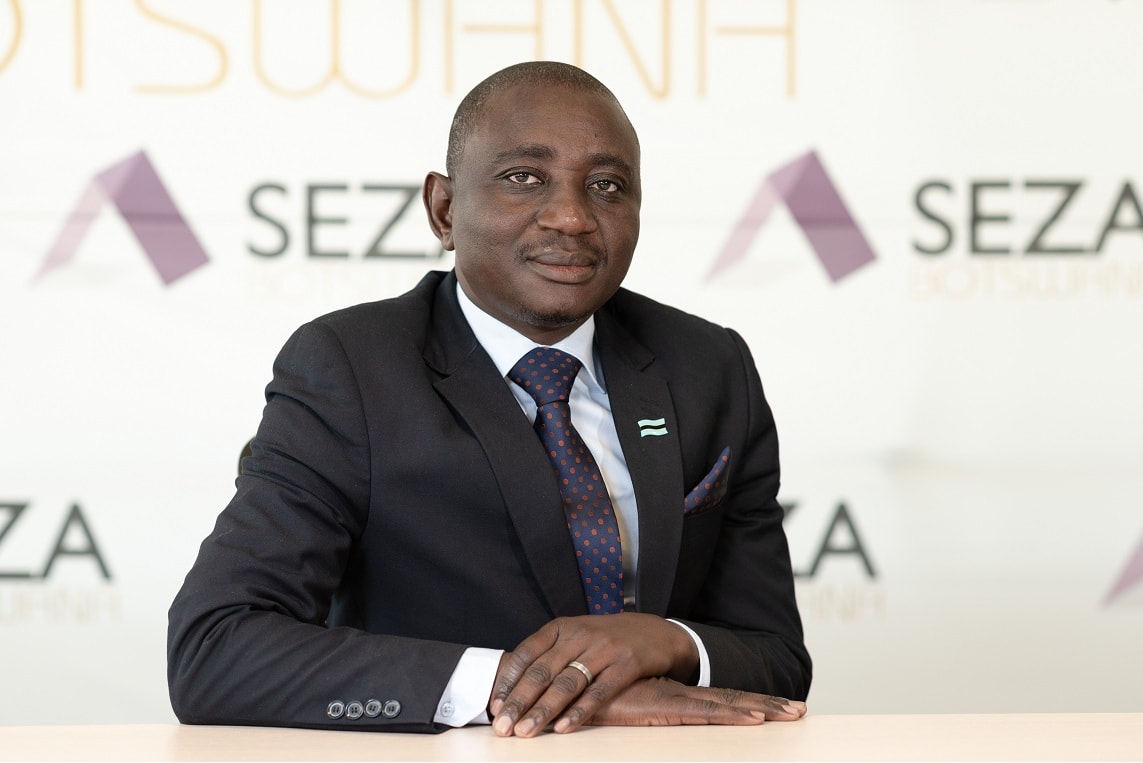GAZETTE REPORTER
The Special Economic Zones Authority (SEZA) was established to boost economic development by positioning Botswana as a premier investment destination and improving the country’s ease of doing business.
This was said by SEZA Chief Executive Officer (CEO) Lonely Mogara in a recent interview. He added that ease of doing business will be achieved by introducing special regulatory, administrative and fiscal regimes in identified Special Economic Zones (SEZs).
“Further, SEZA will address constraints that may generally hinder investment in the country such as work, residence and building permits, Environmental Impact Assessment (EIA) as well as introducing tax incentives through a dedicated One Stop Service Centre (OSSC),” said Mogara.
SEZA was set up to establish, develop, manage and regulate a portfolio of public, private and Public-Private-Partnership (PPP) SEZs. Mogara explained that the Authority has a number of key objectives, among them to attract world class investors and diversify Botswana’s economy through increased export revenue and Foreign Direct Investment (FDI); develop SEZs that are integrated into the domestic, regional, and international markets; facilitate cluster development; and create backward and forward linkages anchored by targeted investors.
“We intend to roll-out a red carpet for SEZ investors through a robust One Stop Service Centre (OSSC). We will also regulate all SEZs in Botswana and monitor investor compliance to set rules and regulations,” said Mogara.
SEZs are a result of recommendations by the Business Economic Advisory Council (BEAC), which was set up by former President Festus Mogae in 2005. According to Mogara, the Botswana Excellence Strategy for Economic Diversification and Sustainable Growth identified Free Zones as “vehicles for introducing and making viable, new activities by providing attractive incentives (tax, labour, land, telecommunications costs), but only for highly specific, strictly circumscribed investment ventures.”
Subsequent to the BEAC recommendations, Government adopted the SEZ Policy of 2011. In 2012/13, Government engaged Kaiser and Associates – a renowned multi-national head-quartered in the USA – to conduct a feasibility study, which recommended eight public sector led special economic zones: Sir Seretse Khama International Airport, Fairgrounds, Lobatse, Pandamatenga, Palapye, Francistown, Selibe-Phikwe and Tuli Block. The SEZs Act was subsequently passed by Parliament in 2015, followed by the establishment of SEZA in 2016, the approval of SEZ Regulations of 2018 and SEZ Incentives in 2019.
“As part of our plan to manage and regulate SEZs in Botswana, we are in discussions with strategic organisations that will be appointed Zone Management Companies. This will allow SEZA to become a pure regulator and avoid playing the dual role of developer and regulator,” said Mogara.
In that regard, he added, SEZA has identified the Local Enterprise Authority (LEA) as a potential Zone Management Company for the Lobatse SEZ and Fairgrounds Holdings for the Fairgrounds FinTech SEZ.
“Botswana Innovation Hub (BIH) has been targeted for the SSKIA SEZ, SPEDU for Selibe Phikwe and Botswana Agricultural Marketing Board (BAMB) for Pandamatenga,” said Mogara.
He further revealed that SEZA is exploring partnerships with these stakeholders to leverage on their strengths and optimise the country’s resources. To this end, he said, SEZA has already signed a Memorandum of Agreement with BIH and another Memorandum of Understanding with Business Botswana.
“Negotiations are at an advanced stage to sign agreements with BAMB and LEA,” concluded Moraga.




